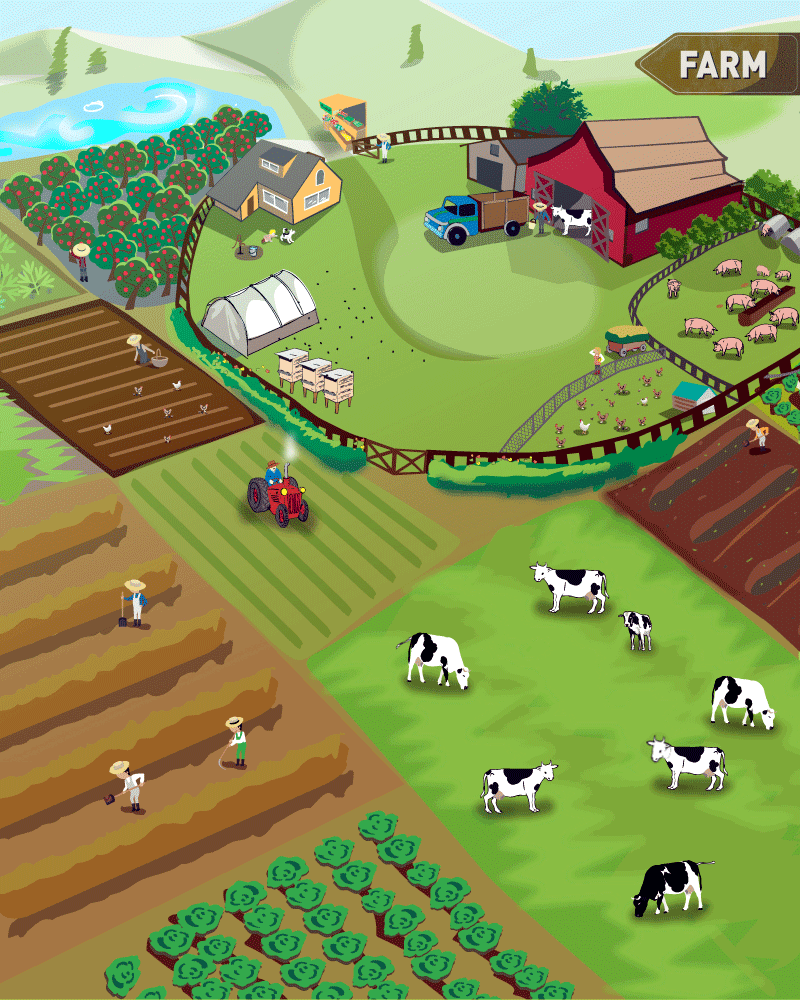
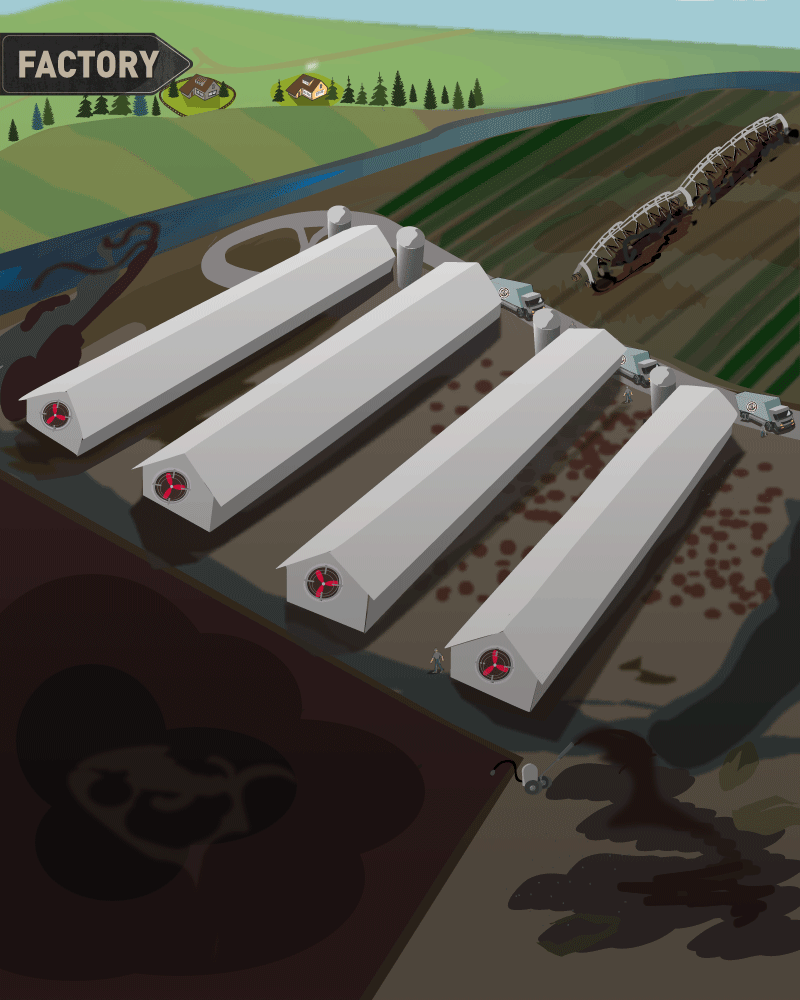
Grass Fed Beef - Ryan Thompson by US Department of Agriculture
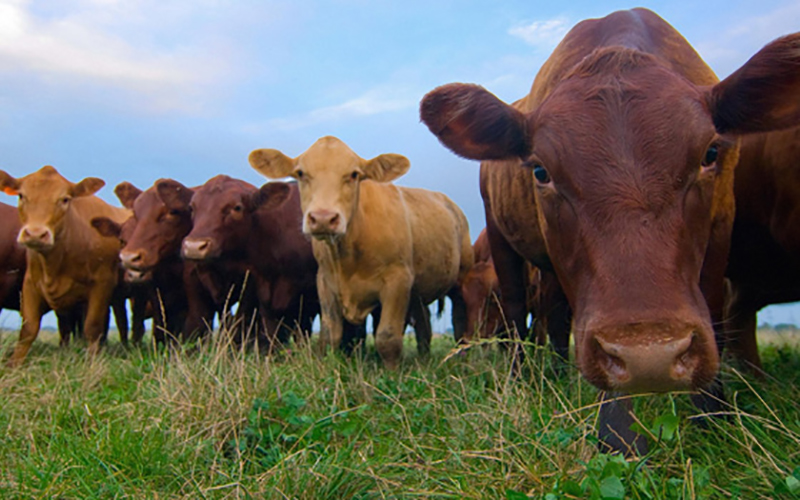
Pasture-Raised
On sustainable livestock farms, animals are raised outdoors on pasture during the growing season, where they can move freely, engage in natural behaviors and consume a natural diet.
Dairy Cow in a Factory Farm by Socially Responsible Agricultural Project
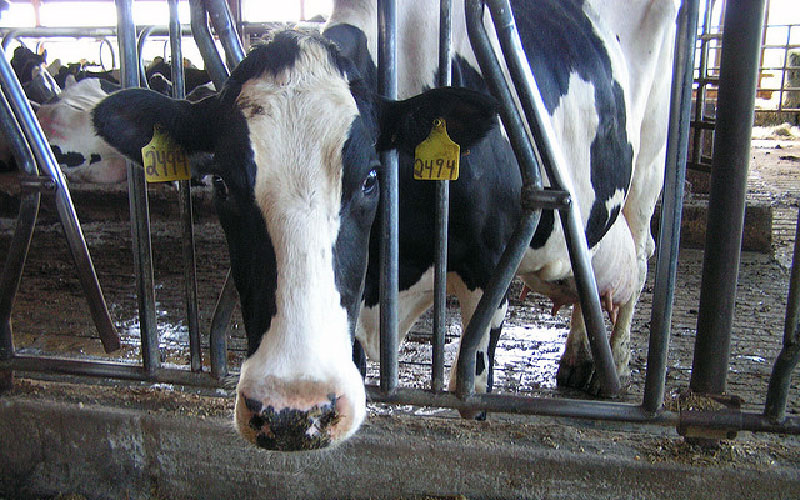
Extreme Confinement
Animals are closely confined in crowded, stressful conditions, often in their own waste. Most animals are raised indoors and never touch bare earth or see the light of day.
Cow Pasture by Photofreak!
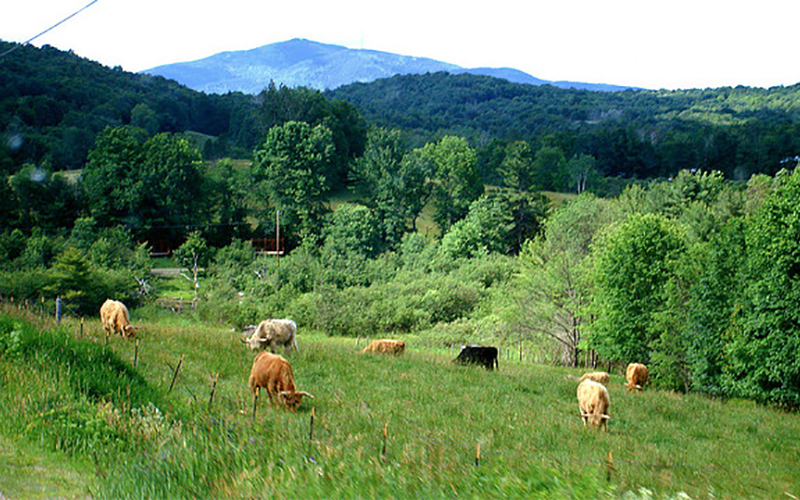
Environmental Stewardship
Sustainable farms raise only as many animals as their land can support. This allows animal manure to be used to fertilize crops, serving as a valuable resource rather than hazardous waste.
Manure Sprayed on Fields by Socially Responsible Agriculture Project
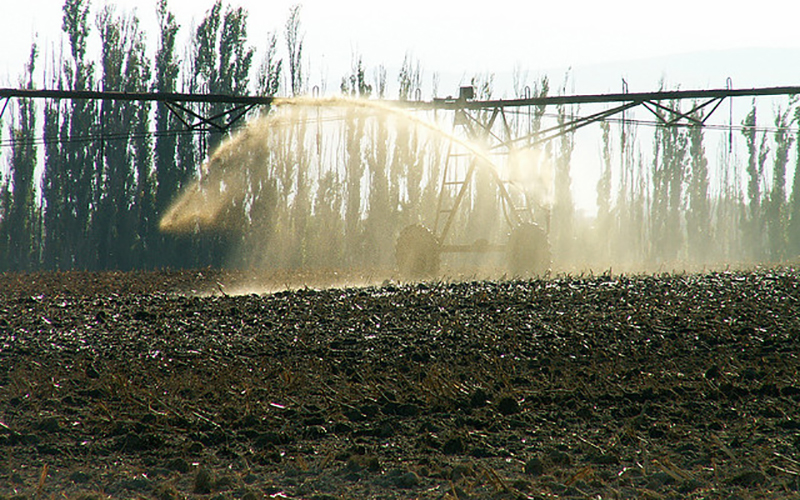
Environmental Degradation
Animals on factory farms create vast quantities of untreated manure which is either stored in huge cesspools called manure lagoons or stockpiled in giant sheds. This waste is over applied to surrounding land, often polluting the air, water and soil.
Happy pig Ben Mater on Unsplash
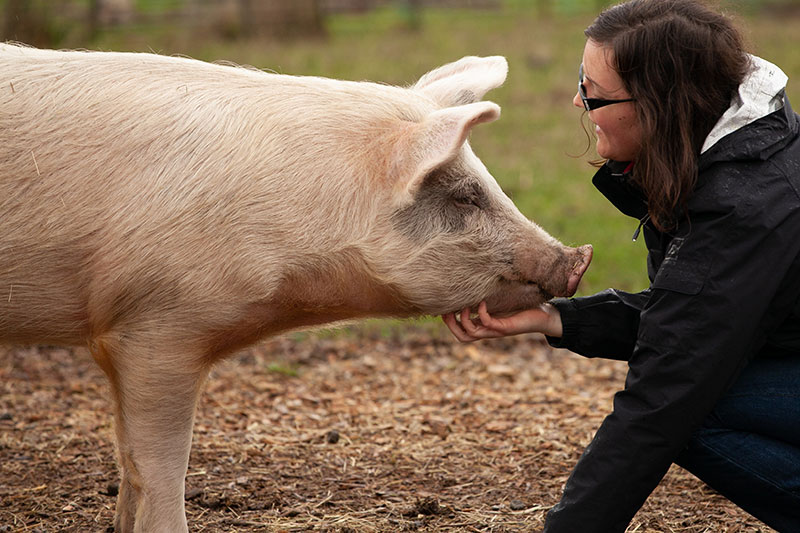
Responsible Antibiotics Use
Sustainable producers never use artificial hormones or nontherapeutic antibiotics [pdf] to speed growth or to compensate for crowded, stressful living conditions. Antibiotics are used only to treat illness, ensuring that they remain effective for animals and people.
Syringe on farm @Budimir Jevtic/Adobe
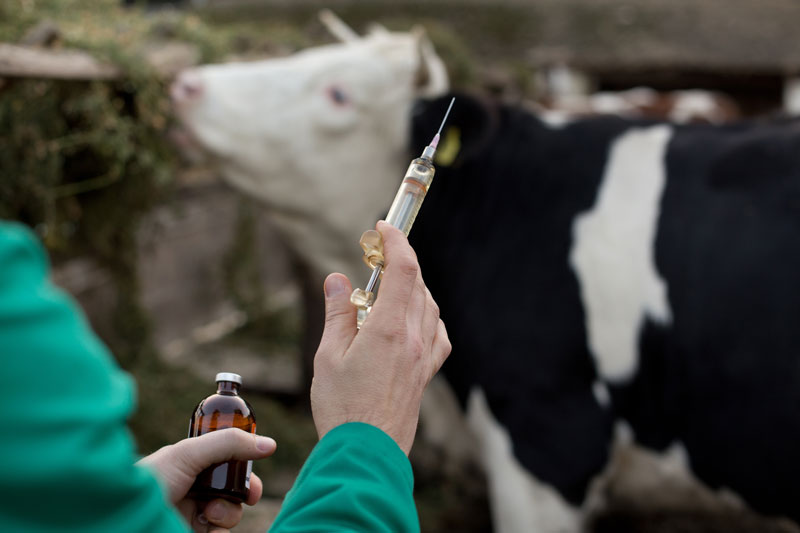
Misuse of antibiotics
Approximately 70 percent of medically important antibiotics sold in the US are given to farm animals to try to manage diseases caused by crowded, stressful conditions. "Antibiotic-resistant bacteria can develop as a result, which can sicken people and reduce the effectiveness of medically important drugs.”
Farmers' Market by Phil Roeder
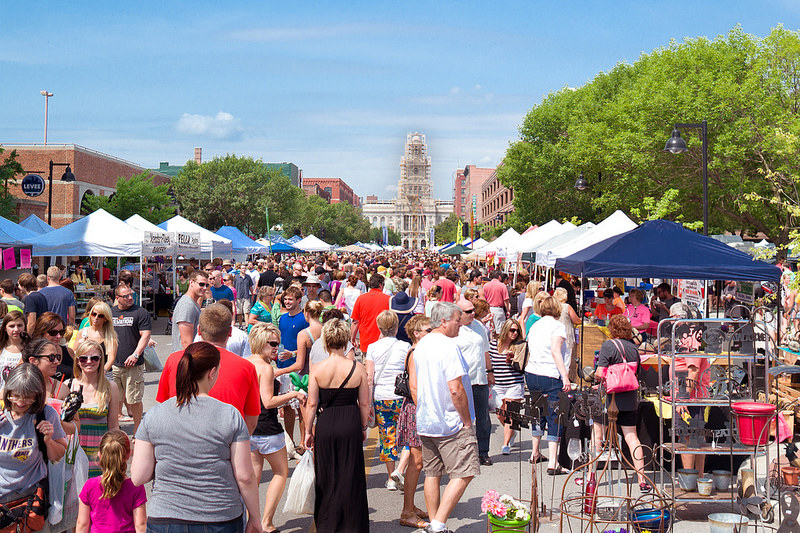
Vibrant Communities
Sustainable farms safeguard the environment, preserve wildlife habitats, bolster local economies and provide good jobs. Agro-tourism, community supported agriculture programs and farmers markets also provide economic opportunities to sustainable farmers who are connected to their local communities and have farms safe and beautiful enough to visit.
TFoxFoto/Shutterstock.com
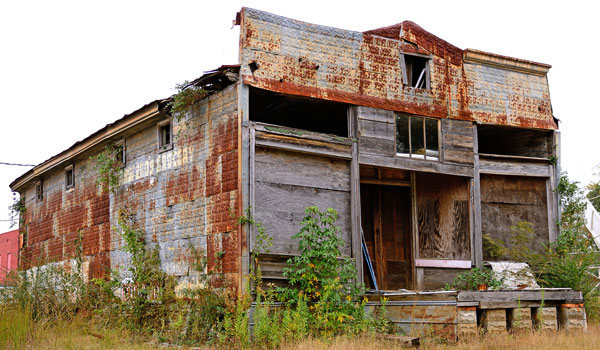
Rural decline
Factory farms damage the environment, threaten public health and degrade surrounding communities by causing depopulation, lowered land values and depressed local economies. Neighbors endure overwhelming odors, risk of infectious diseases and the inability to enjoy time outdoors.
Hogs in a hoop house system by Socially Responsible Agriculture Project
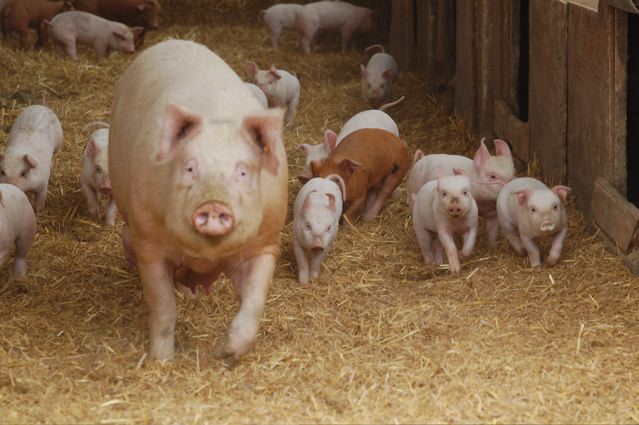
Animal welfare
Sustainable farms treat animals with respect, protecting their health and well-being. Many sustainable livestock producers certify their products with labeling programs that require animals to move freely, engage in natural behaviors and avoid needless pain, illness and stress.
Pigs in gestation crates by Farm Sanctuary
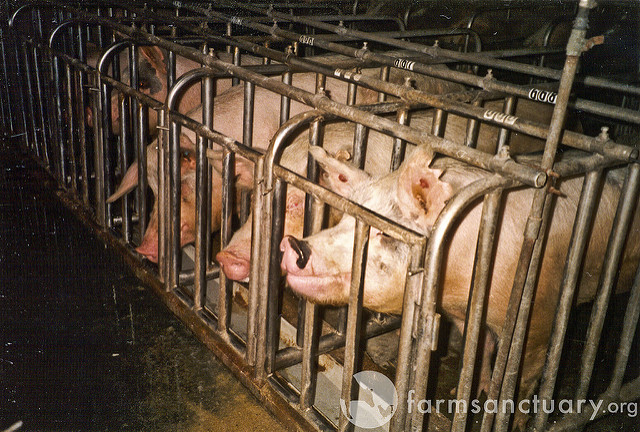
Inhumane conditions
Animals in factory farms experience high rates of illness and stress, and are often forced to undergo painful procedures like de-beaking and tail docking to compensate for aggressive behaviors caused by overcrowding.
Independent farm management
Sustainable livestock farmers are able to make their own choices about how to raise their animals and manage their farms. It’s often easier for them to adopt sustainable practices because many of them have direct relationships with customers who support those practices.
Corporate control
Many factory farm owners are trapped in abusive contracts with huge corporations. They can be burdened with enormous debt from building and adapting their facilities to company standards, making it extremely difficult for them to adopt sustainable production methods.

